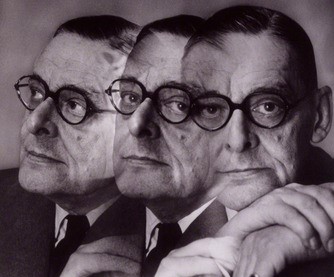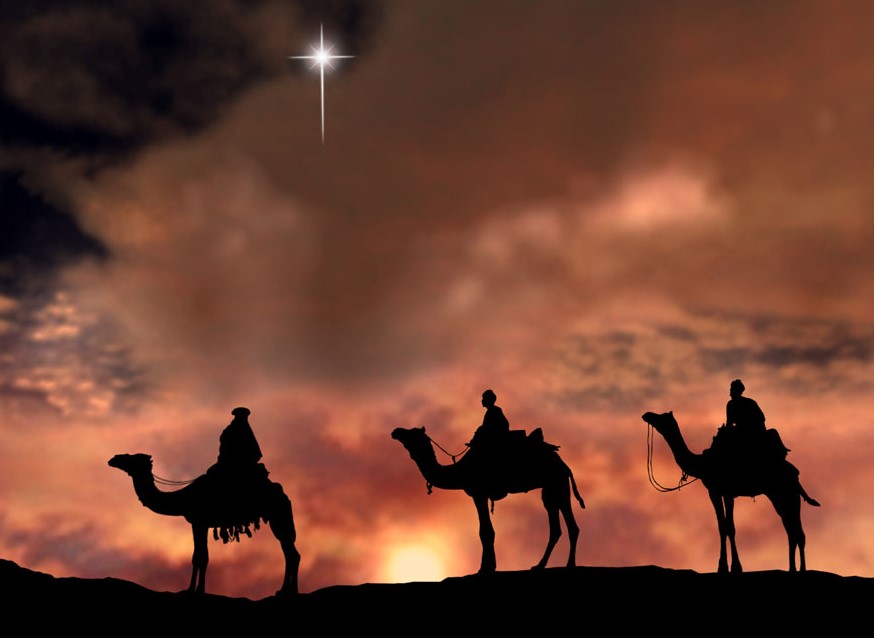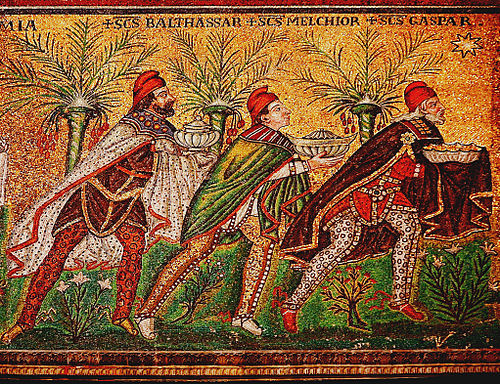麦琪之旅的宗教象征
麦琪之旅:艾略特的宗教与象征
Religion and Symbols in Eliot’s “Journey of the Magi”
封一函提要:《麦琪之旅》在艾略特诗歌发展的转折期中占有中心地位。作者把传记和宗教题材转变为带有戏剧性的独白,体现了对诗歌风格的大胆探索;他采用了时间错置的手法,从而提出了符号和象征的本质这一问题;艾略特通过使读者错误地把字面知识与宗教信仰等同起来,最终旨在反对文字知识所带来的人类进步和历史的发展。
关键词: 艾略特;“麦琪之旅”; 独白; 时间错置; 象征; 宗教
Abstract: Journey of the Magi occupies a central position in the transitional period of T.S.Eliot’s poetic development. Firstly, the poem transmutes the biographical and biblical material into a dramatic monologue that is one of the most experimental in the genre; Secondly, through anachronistic discontinuities, Eliot raises a matter: the nature of sign and symbols; Thirdly, he “teases”the reader to equate, falsely, literary knowledge with religious faith. Eliot further rejects the common idea of progress and the linear model of history the ready knowledge presupposes.
Key words: Eliot; “Journey of the Magi”; monologue; anachronism; symbol; religion
******************************************
原载于《外语与外语教学》
文章片段
对麦琪的语言的解释向我们提示了艾略特对符号和象征的本质的关注,这首诗突出的荒谬之处就是,“那些能通过自身受教育程度或仅仅通过知识的吸收就能读解符号的人最终却不如这三位不能领悟这些符号的朝圣者。”(Harris, 841) 在第二节中,作者设置了一个几乎是无法躲避的陷井或怪圈。如果我们认为读者最终能读解这个符号, 那么我们会觉得读解的文字手段使得一度由符号所预示的神圣历史变得晦涩。对符号作为客观体的了解取代了对通过预示或象征所表现的神秘性的了解。然而,意识到自己具有这种辨认或识别能力也使读者有了一种优越感,他们不禁会问:三博士怎么连如此明显的象征都不明白呢?作者在这里“嬉弄”了他的读者,让他们错误地把对字面意义的了解与宗教信仰等同起来。我们是否可以进一步引申,作者想暗示这样一个道理:宗教是文字化的产物。
附原作(只供参考)
Journey of the Magi T.S.Eliot
‘A cold coming we had of it,
Just the worst time of the year
For a journey, and such a long journey:
The ways deep and the weather sharp,
The very dead of winter.’
And the camels galled, sore-footed, refractory,
Lying down in the melting snow.
There were times we regretted
The summer palaces on slopes, the terraces,
And the silken girls bringing sherbet.
Then the camel men cursing and grumbling
And running away, and wanting their liquor and women,
And the night-fires going out, and the lack of shelters,
And the cities hostile and the towns unfriendly
And the villages dirty and charging high prices:
A hard time we had of it.
At the end we preferred to travel all night,
Sleeping in snatches,
With the voices singing in our ears, saying
That this was all folly. //
Then at dawn we came down to a temperate valley,
Wet, below the snow line, smelling of vegetation,
With a running stream and a water-mill beating the darkness,
And three trees on the low sky.
And an old white horse galloped away in the meadow.
Then we came to a tavern with vine-leaves over the lintel.
Six hands at an open door dicing for pieces of silver,
And feet kicking the empty wine-skins.
But there was no information, and so we continued
And arrived at evening, not a moment too soon
Finding the places; it was (you may say) satisfactory.//
All this was a long time ago, I remember,
And I would do it again, but set down
This set down
This: were we led all that way for
Birth of Death? There was a Birth, certainly,
We had evidence and no doubt. I had seen birth and death,
But had thought they were different; this Birth was
Hard and bitter agony for us, like Death, our death.
We returned to our places, these Kingdoms,
But no longer at ease here, in the old dispensation,
With an alien people clutching their gods.
I should be glad of another death.




